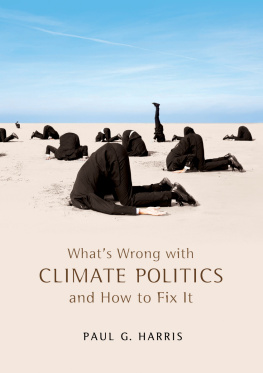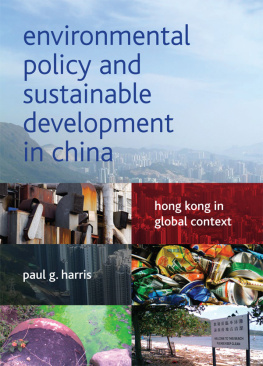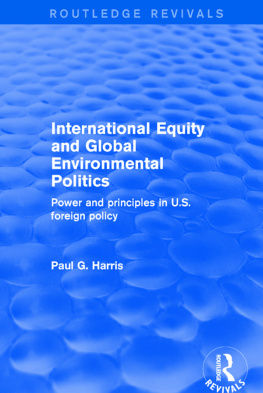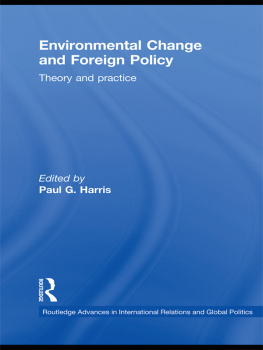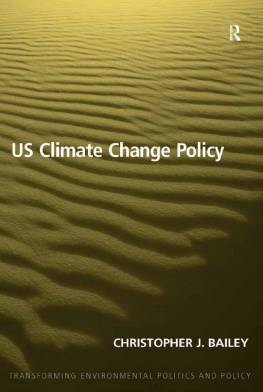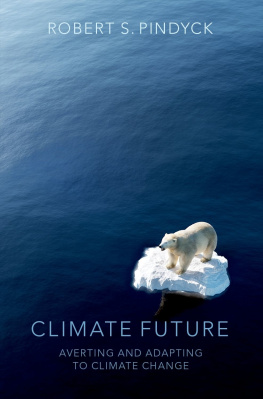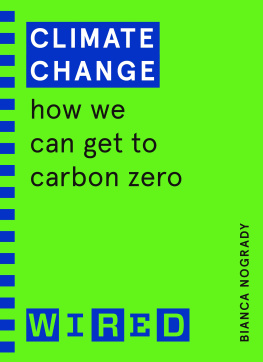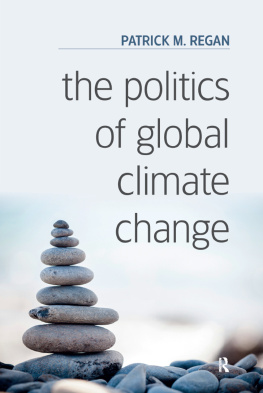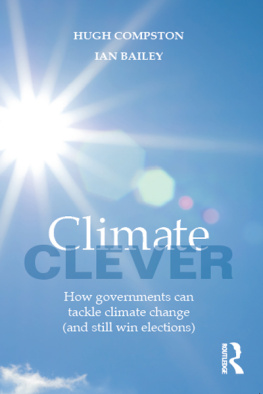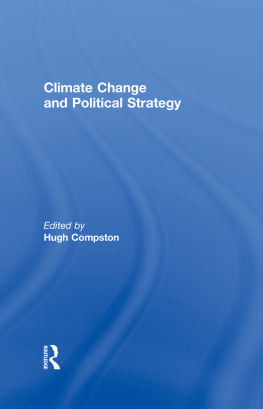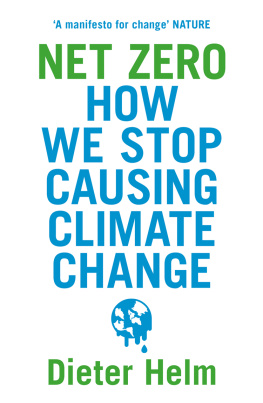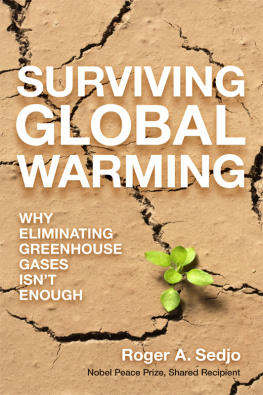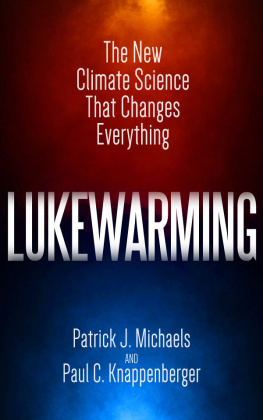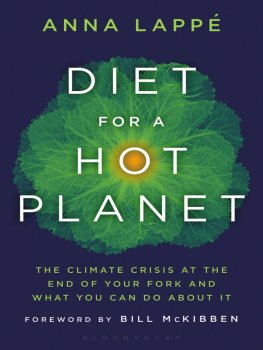Whats Wrong with
Climate Politics
and How to Fix It
Copyright Paul G. Harris 2013
The right of Paul Harris to be identified as Author of this Work has been asserted in accordance with the UK Copyright, Designs and Patents Act 1988.
First published in 2013 by Polity Press
Polity Press
65 Bridge Street
Cambridge CB2 1UR, UK
Polity Press
350 Main Street
Malden, MA 02148, USA
All rights reserved. Except for the quotation of short passages for the purpose of criticism and review, no part of this publication may be reproduced, stored in a retrieval system, or transmitted, in any form or by any means, electronic, mechanical, photocopying, recording or otherwise, without the prior permission of the publisher.
ISBN-13: 978-0-7456-7043-0
A catalogue record for this book is available from the British Library.
The publisher has used its best endeavours to ensure that the URLs for external websites referred to in this book are correct and active at the time of going to press. However, the publisher has no responsibility for the websites and can make no guarantee that a site will remain live or that the content is or will remain appropriate.
Every effort has been made to trace all copyright holders, but if any have been inadvertently overlooked the publisher will be pleased to include any necessary credits in any subsequent reprint or edition.
For further information on Polity, visit our website: www.politybooks.com
About the Author
Paul G. Harris is the Chair Professor of Global and Environmental Studies at the Hong Kong Institute of Education. He has written extensively on global environmental politics, policy and ethics, usually with an emphasis on climate change. His work has been published widely in scholarly journals. He is author/editor of many books, including Climate Change and American Foreign Policy (St Martins Press/ Macmillan), International Equity and Global Environmental Politics (Ashgate), The Environment, International Relations, and U.S. Foreign Policy (Georgetown University Press), International Environmental Cooperation (University Press of Colorado), Global Warming and East Asia (Routledge), Confronting Environmental Change in East and Southeast Asia (United Nations University Press/Earthscan), Europe and Global Climate Change (Edward Elgar), Environmental Change and Foreign Policy (Routledge), Climate Change and Foreign Policy (Routledge), The Politics of Climate Change (Routledge), World Ethics and Climate Change (Edinburgh University Press), Chinas Responsibility for Climate Change (Policy Press), Ethics and Global Environmental Policy (Edward Elgar), Environmental Policy and Sustainable Development in China (Policy Press), the Handbook of Global Environmental Politics (Routledge) and Whats Wrong with Climate Politics and How to Fix It (Polity).
Preface
Governments and the international community have failed to stem global emissions of carbon dioxide and other greenhouse gases causing climate change. Indeed, climate-changing pollution is increasing globally and it will do so for decades to come without aggressive action by the international community, governments, individuals, and other actors. In this book, I aim to identify the most important reasons for the failure to take such action already, and to suggest some different ways of thinking about the problem and the means by which stronger action can be encouraged. In the process, I will highlight a fundamental driving force of that failure: self-interestedness or, in the literal sense, selfishness. At a very fundamental level, what is wrong with climate politics boils down to selfishness of governments, selfishness of politicians, selfishness of businesses, selfishness of special interests, and, at least among those of us who are affluent, selfishness of individuals. Above all else, what is wrong with climate politics is its inherent tendency to perpetuate and even encourage the selfishness of these actors while too often forgetting the genuine fundamental needs, rights, and obligations of human beings.
Consistent with other books in Politys Whats Wrong and How to Fix It series, in this one I use an analogy from medicine a sick patient requiring treatment to alleviate or cure a serious ailment to illustrate what is wrong with climate politics and how it might be fixed. As with most complex medical ailments, this one does not have a single cause. It has many causes that have for generations undermined our collective health and that of the whole earth. And much like in the case of difficult illnesses, this one must be given many treatments. But to do that we must first diagnose the most serious ailments and what causes them.
The book comprises two parts. In keeping with the practice of other books in the Whats Wrong series, Part I diagnoses several things that I believe are most wrong with climate politics, namely: (1) the Westphalian international system, which encourages nations to fight for their narrowly perceived interests and makes international cooperation on climate change extraordinarily difficult; (2) the United States and China, which together produce over one-third of global greenhouse gas pollution but which so far have refused to compromise on demands that the other must essentially act first; and (3) the growing pollution that comes from material consumption, energy use, and other aspects of modern lifestyles that are spreading from the developed nations to the developing world as more people join the global middle class.
Part II of the book proposes three of the possible treatments that can be brought to bear to heal the failed politics of climate change, namely: (1) a new kind of climate diplomacy that puts people, including their rights and duties, at the center of climate politics and policy, in the process highlighting the individual human suffering that will come from climate change and the associated duties of affluent and capable individuals everywhere; (2) a formula for a new consensus among developed and developing nations whereby the common but differentiated responsibilities of nations (notably the United States and China) to address climate change are matched by the common but differentiated responsibilities of individuals, with the worlds affluent classes (including in both the United States and China) taking on greater burdens, thereby potentially breaking the international political deadlock; and (3) a campaign to help and encourage people to consume more genuine happiness and wellbeing through cultivating full, rewarding lives based on sufficiency and environmental sustainability.
While these treatments are aspirational (again in keeping with other books in the Whats Wrong series), they are not intended to be utopian. They are potentially workable solutions to what ails the politics of climate change. Having said this, my objective is not to provide a detailed prescription for immediately solving the climate crisis. I doubt a single book could do that. At the same time, I am mindful that we are rapidly running out of time. We need to act boldly very soon. Thus I identify some fundamental problems with climate politics and point to why and how the world might overcome them relatively soon. This will require adjusting the way we think about climate change and how we respond to it. If this book helps to do that, it will have made a small contribution to mitigating the inevitable harms that climate change portends.
Another, more modest, objective of the book is to help readers who might be less familiar with climate politics to get their heads around important issues and events. In that sense, the book has an educational objective. I draw upon the ideas and words of many scholars and experts to illustrate key ideas and forces influencing the worlds responses to climate change. However, one objective here is to avoid repeating the theses of other books. One consequence of this may be that some of the themes common to those other books are not as well developed as their advocates might like. As some compensation, notes and references point to where ideas have come from or are elaborated, suggesting paths that readers can follow to pursue them further. All of the ideas we need to address climate change are out there. It is how we put them together, how we prioritize them, and whether we implement them that matter for the future.

